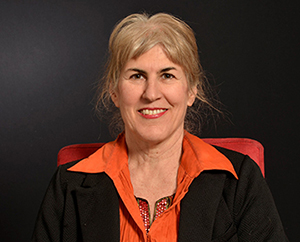College of Education
Acclaimed scholar proposes a new paradigm to enhance research practice

Prof Norma Romm
Prof Norma Romm came out victorious at Unisa’s 2022 Research and Innovation Awards ceremony that took place in early June, after she bagged the Women in Research: Research Leadership Award. This award falls under the Vice-Principal: Research, Postgraduate Studies, Innovation and Commercialisation Award for Excellence in Research.
Romm, of Unisa’s Department of Adult, Community and Continuing Education, says that she was pleasantly surprised by receiving the award. "Perhaps, it will generate interest in my college and the broader university around my research focus areas, which were acknowledged by the institution as significant contribution," remarks Romm.
In congratulating the awardees at the ceremony, Unisa’s Principal and Vice-Chancellor, Prof Puleng LenkaBula, said that the awards provide an opportunity to celebrate the very best of Unisa’s researchers, as they contribute extensively to research and development. She remarked: "Unisa has a vital role to play in harnessing knowledge production for the benefit of society."
Unisa’s Chancellor, His Excellency Dr Thabo Mbeki, reflected on some of the challenges faced by Africa, such as the unprecedented Covid-19 outbreak and its effects, thereof. He encouraged researchers to conduct Africa-centred research, aimed at resolving African challenges. "Africa-centred technologies that are relevant for African conditions need to be developed, which can also be valuable beyond the continent," asserted Mbeki.
Click here for coverage of the 2022 Unisa Research and Innovation Awards Ceremony.
The big four plus one
Romm’s main research focus is to explore the implications of embracing what various scholars from colonised areas define as an indigenous paradigm for social research. She intends to assist with credentialising this research paradigm as the fifth, alongside the commonly known "big four" paradigms. Romm envisions the constructive impact that the proposed paradigm would have in social research. She explains: "I have offered an in-depth exploration of the relational quality of knowing and living, and an ethical approach, as embraced in the assumptions of the indigenous paradigm. I have discussed these with fellow scholars, in terms of implications for responsible research practice."
Romm has indicated how the proposed paradigm is linked to the transformative paradigm. Indigenous authors suggest that research with participants and stakeholders must be progressive, to advance a social and ecological justice-oriented agenda. For her, this is the basis for solidarity between the two paradigms.
"In my various writings, I have provided concrete examples of how research can help catalyse transformative learning towards effective, ethical and collective action," she continues. "Through various forums, I consistently generate impactful discussions around transformative-oriented and indigenous-informed research in the university and beyond. Engaging with various stakeholders about this, enables us to consider doing research with constructive local and global import, to pursue increased justice, as defined by those marginalised in social and ecological life."
Having authored several academic books, Romm has co-edited six books. She has published over 100 research articles on social theorising, transformative research towards social and ecological regeneration, and indigenous paradigms of knowing.
Establishing a new resource
Her continued research goal is to create more practical illustrations of how transformative research with an indigenous orientation can be activated. According to Romm, the illustrations can serve as a resource for those that wish to practice this kind of research. "We need to build more illustrations that can be shared and discussed in academia and beyond," proposes Romm.
Romm advises young researchers to locate an area of research interest, in a manner that would benefit participants, and other stakeholders. She concludes: "Pursue it with passion, while encouraging a dialogue in various academic and ‘lay’ forums around the meaningfulness of engaging in the research."
* By Nancy Legodi, Acting Journalist, Department of Institutional Advancement
Publish date: 2022/06/28

 Unisa co-hosts G20 community outreach in the Eastern Cape
Unisa co-hosts G20 community outreach in the Eastern Cape
 Unisans gain membership of prestigious science academies
Unisans gain membership of prestigious science academies
 Advocating for disability transformation through servant leadership
Advocating for disability transformation through servant leadership
 Unisa Press continues to illuminate the publishing space
Unisa Press continues to illuminate the publishing space